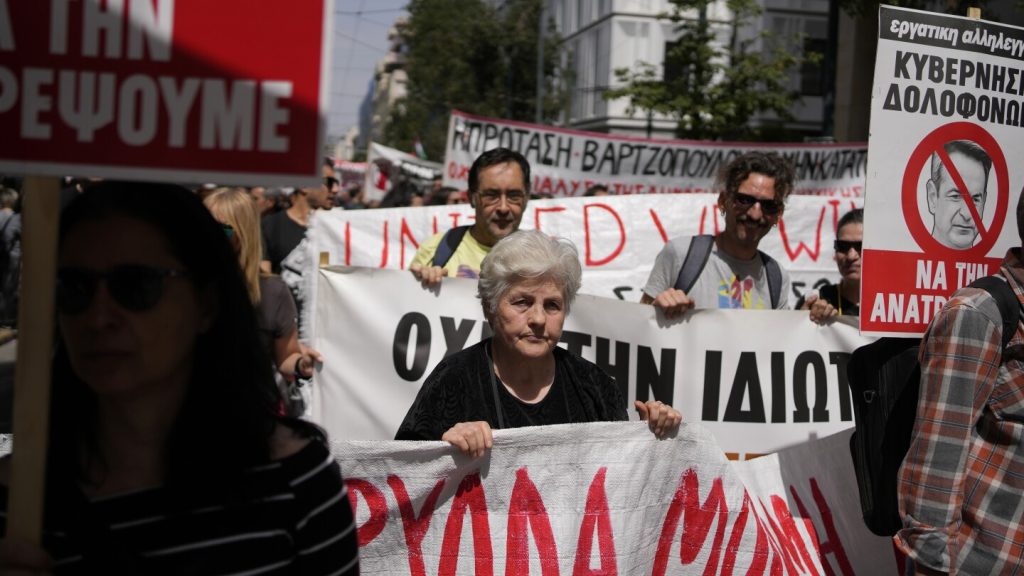Greece’s largest labor union, the General Confederation of Greek Labor, called for strikes in protest of the removal of collective bargaining rights more than a decade ago during a severe financial crisis. The strikes disrupted public transport services, halted ferries, and led to some state-run hospitals operating on emergency staffing levels. Thousands of protesters gathered in central Athens chanting slogans like “our rights are not utopia,” with public park workers and food delivery drivers also joining the strike. In Thessaloniki, Greece’s second-largest city, around 4,000 protesters rallied peacefully. National rail services were also disrupted, but flights at Greek airports remained unaffected.
Despite Greece’s return to economic growth and an investment-grade sovereign bond rating following international bailouts and a severe recession from 2010-18, many labor rights removed as a temporary measure during the crisis have not been restored. The minimum wage in Greece is now set by the government rather than negotiated between unions and employers. GSEE leader Yiannis Panagopoulos highlighted the lack of progress in restoring labor laws and individual working rights, emphasizing that these changes would cost nothing and provide workers with fair pay. Collective bargaining and the right to strike are fundamental rights protected under the Charter of Fundamental Rights of the European Union, but labor associations in Europe argue that these rights have been limited in Greece and other member states affected by financial crises.
Labor unions in Greece and other European countries impacted by financial crises have raised concerns about the restriction of unions’ ability to negotiate wage deals. While rights such as collective bargaining and the right to strike are enshrined in EU law, they are not always fully implemented in member states. The strikes in Greece highlight the ongoing issues facing workers in the aftermath of the financial crisis, with labor rights still not fully restored despite economic recovery. The protests and strikes serve as a reminder of the importance of protecting workers’ rights and ensuring fair pay and working conditions for all employees.
The protests in Greece come at a time when labor rights and working conditions are under scrutiny worldwide, with many workers demanding better pay, benefits, and job security. The impact of the COVID-19 pandemic has further highlighted the vulnerabilities faced by workers in various industries, leading to calls for greater protections and support. The strikes in Greece serve as a reminder that the fight for workers’ rights is ongoing, and that collective action and solidarity are essential in advocating for fair treatment and equitable working conditions. It remains to be seen how the Greek government and other authorities will respond to the demands of the labor unions and whether meaningful changes will be implemented to address the concerns raised by workers.


